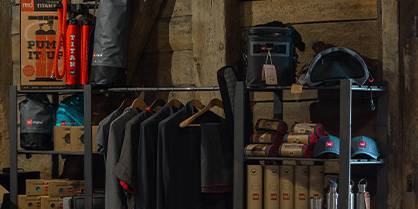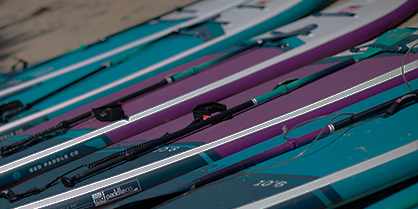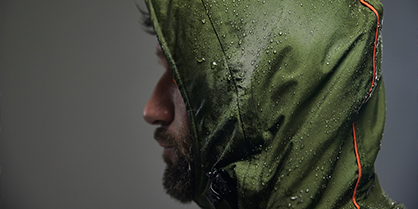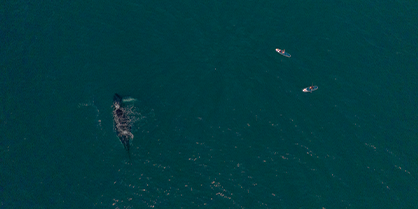
FRANCESCA TROTMAN
Following the recent launch of our board design competition in partnership with Spoonflower and Love The Oceans charity, we caught up with the Founder and CEO of Love The Oceans, Francesca Trotman.
We heard all about her amazing community work in Mozambique and what first started as a pipeline dream at University has now become an award-winning conservation charity. Take a deep dive and find out all about their amazing work, how they use our paddle boards for marine research and why Love the Oceans are super excited to be a part of the ‘The Worlds Waterways’ board design competition.

CAN YOU BRIEFLY DESCRIBE LOVE THE OCEANS FOR THOSE WHO’VE NOT HEARD OF YOUR AWESOME CHARITY?
“Love the Oceans is a marine conservation organisation in Mozambique. We’re working to establish a Marine protected area in our region. This involves research and community outreach such as fisheries research to prove that the current methods of fishing are unsustainable. We carry out Coral Reef research to prove what we have is worth protecting and we also perform Humpback Whale, Whale Shark, Mantuary and Turtle research; we have critical endangered nesting turtles in the area. We observe ocean trash research to look at the different types of waste we have washing up on the shores and what can be done to reduce it.
Furthermore, we have a community outreach program where we teach basic marine resource management to 10-13-year olds. We teach swimming to 4-18-year olds to encourage and foster a passion for the ocean and the water in general, which in turn should help to save lives. We have a sustainable fishing project, where I work with the local fishermen in the area exploring the different types of fishing and how to move away from unsustainable fishing. Our sustainable livelihoods section of the charity works to develop different sources of income that reduces the reliance on the ocean for food and finances.

Photo: Stella Levantesi
YOU HAVE BUILT AN AMAZING NETWORK/COMMUNITY WITH PEOPLE WHO ARE PASSIONATE ABOUT MARINE CONSERVATION, WHAT HAVE BEEN THE STEPS TAKEN TO GET TO WHERE YOU ARE TODAY?
That’s a really good question. Well, Love the Oceans didn’t start as everything we do now, it started off much much smaller and has expanded and grown over the years. When we first started it was just me and Pasquale, our community Outreach Manager. We were just doing fisheries work and community outreach but with basic marine resource management to 10 – 13-year olds. From there we’ve built a different project every year. In 2017 we started the Humpback Whale research and proper ocean trash research. In 2018 we added a trash management section turning the waste into eco bricks and we added more in depth Humpback research then too.
Our OCC program was born in 2018 and 2019 was our first group trip – a lot of our funding comes from eco-tourism. We started taking school trips out into Mozambique and launched our photography workshop with ‘Photography Without Boarders’ which then lead onto a documentary on us as well.
We expanded properly in 2020 into the Turtle research, which we wanted to operate as a best practise, to bring an area up to its best standard it can be. We employed 21 indigenous people to provide support to them and their families.
It’s been a slow progression. Our community outreach has been really integral to help cultivate that passion for marine conservation and the ocean conservation program, in particular. Its literally all about kids getting to enjoy the water, not fearing it and wanting to protect it. So that’s been really integral in building our network in the grounds of Mozambique.
We launched a free online series during the pandemic that runs weekly and features different conservationists from around the world talking about their work and what they do. We pride ourselves on a holistic approach, which is why we like having such a diverse team as it brings a completely different angle to the table and that’s really important when thinking about a well-rounded approach.

Jeffrey-Garriock | Stella Levantesi
YOU HAVE A FEW OF OUR PADDLE BOARDS, CAN YOU TELL US WHAT YOU USE OUR PADDLEBOARDS FOR?
We love our Red Paddle Boards! We use them for a couple of different areas of our conservation projects. Firstly, we use them to paddle out into the ocean and drop the hydrophones (an underwater microphone) and record what we are hearing. The paddleboards do let us get closer to the Whales to collect acoustic data because they are non-powered, there is no noisy engines around that won’t scare them. The Whales come up really close and you get great interaction. We also use them as free diving platform to collect coral reef research, which you need to do on a fairly calm day
----------------------------------
“ The paddle boards let us get closer to the Whales to collect acoustic data – there are no noisy engines around to scare them. The Whales come up really close and you get great interaction”.
----------------------------------
WHAT PROJECT WOULD YOU CONSIDER YOUR MOST SIGNIFICANT CAREER ACCOMPLISHMENT TO DATE?
This varies on the day you talk to me. I love each of our projects at different points, I would probably say the sustainable fishing project is potentially what I’m most proud of, but that is what I’m hoping to do my PHD in, so I’m biased!
Our sustainable fishing project is a combination of our fisheries research and our coral reef research. Our coral reef research shows we have a lack of herbivore fish in our area. Herbivore fish eat the algae, which competes with coral, so the lack of herbivore fish means that the algae can grow and outcompetes the coral, which is detrimental to the coral reef.
When you compare that to the fisheries data you get an understanding of which different types of fishing are having an effect and how sustainable they are. This gives us an insight into the different types of fish that are caught – we found that spear and netting are the two types of fishing that catch the most herbivores. These are the two types of fishing we want to move away from, so the herbivore population have a chance to recover.
Kayak fishing catches the most carnivore fish in our area. These carnivore fish eat the herbivore fish, so that’s the type of fishing we prefer here, in order to address that imbalance in the eco system. We are addressing the imbalance through the different fishing pressures. This is something we are working on with the local fishermen. It is a 6-stage project and on completion we will protect 16,444 football pitches of ocean from net use.
In terms of my personal career, I’ve actually just won an award for Blue Marine Foundation young initiative award for recognition of my work with Love the Oceans and it’s the first award we have won!

Francesca Trotman
WE HAVE JUST LAUNCHED OUR DESIGN A BOARD COMPETITION IN THE RUN UP TO WORLD OCEANS DAY IN JUNE. AS THE THEME IS THE WORLD’S WATERWAYS, WHAT RESEARCH HAS LED YOU TO THE MOST BEAUTIFUL OF WATERS?
I’m torn between two, first would be the coral reefs we have in our area, paddling over the coral reefs at low tide about 3-4ft deep, you could just look down and see the amazing corals, no need for snorkelling. Second would be the Humpback Whale research – that’s an amazing experience because you’re on your board in the ocean and last year we had a mother and calf play for around for an hour and a half, 5 metres infront of the board!
WHAT HAS PERSONALLY BEEN YOUR FAVOURITE PROJECT FOR LOVE THE OCEANS?
I love all our research work, but recently I have really enjoyed our work with ‘Photographers Without Boarders’ and the story making process behind the conservation. We find it really interesting as there is often disconnect when communicating science to the public. Danielle, CEO of Photographers Without Boarders, builds a bridge to fill that gap and creates media to tell that story about conservation, that’s probably one of my favourites at the moment!
CAN YOU TELL US HOW PEOPLE CAN GET INVOLVED TO SUPPORT YOU?
There are loads of different ways you can support us, you can book onto expeditions which are on our website, lovetheoceans.org. You can adopt a whale shark with an adoption certificate and get info packs. We have donations which have been pretty integral to keeping us going through Covid. We have merchandise too, which people can buy if you want to support what we do.









